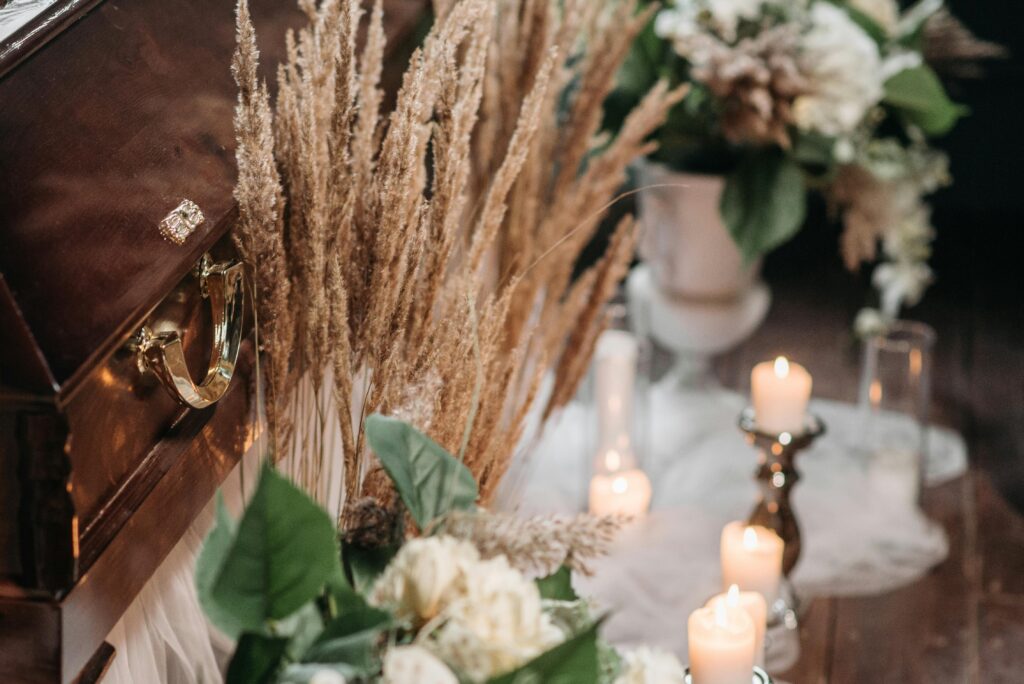Planning a funeral can be a daunting task, especially during a time of grief. This guide aims to provide you with clear, practical information about the various funeral options available in the UK. We’ll explore traditional services, alternative choices, and address common questions to help you make informed decisions that align with your wishes or those of your loved ones.
1. Legal Aspects of Funeral Arrangements
Before diving into the options, it’s crucial to understand the legal framework surrounding funerals in the UK:
– While you can express your funeral wishes in your Will, these are not legally binding on your executors or personal representatives.
– The person with the legal right to arrange the funeral is typically the executor named in the Will or the next of kin if there’s no Will.
– To ensure your wishes are respected, it’s best to discuss them with your family and executor during your lifetime.
2. Traditional Funeral Options
2.1 Cremation Services
Cremation has become increasingly popular in the UK, with about 77% of funerals now opting for this method. Here’s what you need to know:
– Process: The body is cremated using intense heat, resulting in ashes.
– Ashes: Families can choose to scatter, bury, or keep the ashes in various ways.
– Cost: Generally less expensive than burial, but prices can vary.
– Environmental impact: While not as eco-friendly as some alternatives, it requires less land use than traditional burial.
2.2 Burial Services
Traditional burial remains a common choice, especially for those with religious or cultural preferences:
– Process: The body is buried in a coffin, usually following a funeral service.
– Location: Can take place in a churchyard, cemetery, or woodland burial site.
– Cost: Typically more expensive than cremation due to land use and ongoing maintenance.
– Personalisation: Allows for traditional grave markers and regular visitation.
3. Alternative Funeral Options
3.1 Woodland Burials and Green Funerals
For the environmentally conscious, these options offer a more natural approach:
– Setting: Takes place in natural environments like woodlands or meadows.
– Materials: Uses biodegradable coffins or shrouds.
– Markers: Natural memorials like trees or plants instead of headstones.
– Benefits: Lower environmental impact and often more cost-effective.
3.2 Direct Cremation
A simple, no-frills option that’s gaining popularity:
– Process: Cremation without a formal service or attendees.
– Cost: Usually the least expensive option.
– Flexibility: Allows for a separate memorial service at a later date.
3.3 Humanist and Non-Religious Funerals
Catering to those who prefer a non-religious celebration of life:
– Focus: Emphasises the person’s life and achievements rather than religious elements.
– Flexibility: Can be held in various locations and personalised extensively.
3.4 Eco-Friendly Options
For those prioritising environmental considerations:
– Biodegradable urns and coffins
– Tree pod burials
– Use of sustainable materials and transportation
3.5 Colourful Funerals
A vibrant alternative to traditional somber services:
– Encourages bright colours in clothing, flowers, and even the coffin
– Can include unique elements like balloon releases or personalised vehicles
3.6 Burial at Sea
A unique option, particularly appealing to those with a connection to the sea:
– Requires a license from the Marine Management Organisation
– Limited to three designated areas in the UK
– Specific documentation needed
4. Body Donation and Organ Donation
4.1 Organ Donation
As of May 2020, England has an ‘opt-out’ system for organ donation:
– All adults are considered potential donors unless they’ve recorded a decision not to donate.
– Family consent is still required before donation proceeds.
– You can register your decision on the NHS Organ Donor Register.
4.2 Body Donation
Donating your body to medical science is another option:
– Helps advance medical research and training
– Specific consent forms required
– Not all bodies may be accepted due to medical criteria
5. Costs and Planning
Funeral costs can vary widely depending on the chosen options. As of 2024, average costs are:
– Traditional burial: £4,000 – £7,000
– Cremation: £3,000 – £5,000
– Direct cremation: £1,000 – £2,500
– Woodland burial: £2,000 – £4,000
To manage costs and ensure your wishes are met, maybe consider:
– Prepaid funeral plans: Allow you to pay for your funeral in advance at today’s prices.
– Funeral insurance: Provides a lump sum to cover funeral costs upon death.
– DIY funerals: Managing arrangements yourself can significantly reduce costs.
6. COVID-19 Considerations
The pandemic has impacted funeral practices. While restrictions have eased, it’s worth considering:
– Live-streaming options for those unable to attend in person
– Potential limitations on attendee numbers at indoor venues
– Increased popularity of outdoor services
7. Conclusion
Choosing the right funeral option is a personal decision that depends on various factors including beliefs, budget, and environmental concerns. By understanding the available choices, you can make an informed decision that best honors your wishes or those of your loved ones.
Remember, the most important step is to discuss your preferences with your family and ensure they’re documented, whether in your Will or through a prepaid funeral plan.
FAQs
1. Can I be buried without a coffin in the UK?
Yes, it’s possible in some natural burial grounds. Check with specific sites for their policies.
2. What’s the cheapest funeral option in the UK?
Direct cremation is typically the least expensive option.
3. How do I ensure my funeral wishes are respected?
Discuss your wishes with family, document them clearly, and consider a prepaid funeral plan.
4. Can I have a home funeral in the UK?
Yes, home funerals are legal in the UK, but there are regulations to follow.
5. How long after death does a funeral typically take place?
Usually within 1-2 weeks, but this can vary based on circumstances and chosen arrangements.
For more information on funeral regulations and options in the UK, visit the official government website.






